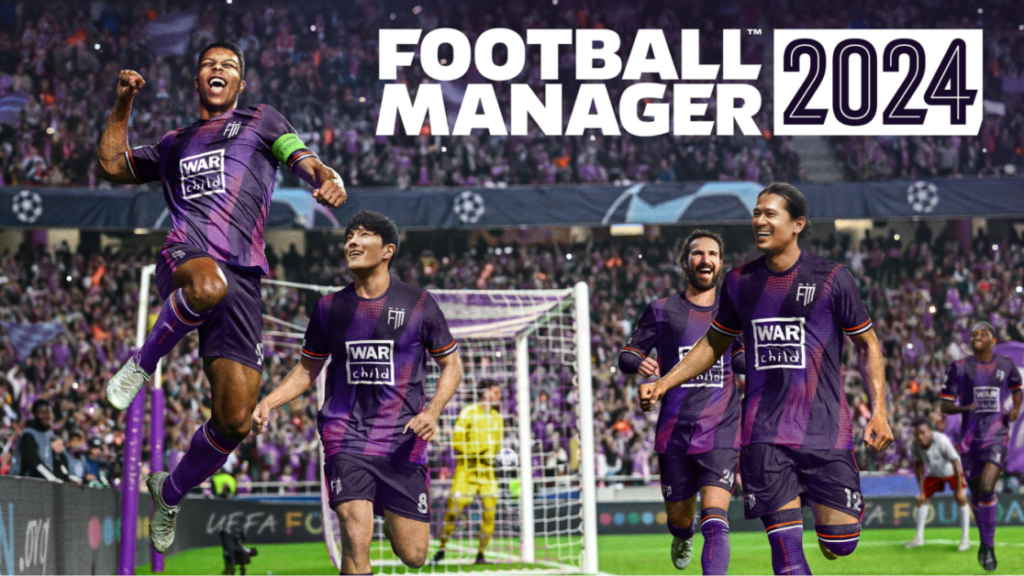The world of football has always been a vibrant mix of culture, competition and constant innovation. But something has crept onto the sidelines in recent decades, something that no football romantics of the 80s would have foreseen: video games. FIFA (or EA FC, as we have to call it now) and Football Manager (FM) are no longer just something you play for fun with friends.
What started as innocent entertainment is now an almost recognized Football University in digital format. Video games affect not only fans’ passion for sports, but also tactical systems and strategies at a level that makes even the most hardcore football purists wrinkle their noses – and maybe even give a little appreciative nod. Simulating the outcomes and using the database of such videogames as FM is a gold standard for those who place bets for fun and love making educated guesses. To have a little boost and become more knowledgeable, check LionTips for the best sports betting predictions and tips. Who would have thought that the hour-long FIFA session in the teenage room was not just about winning virtual matches, but perhaps also about preparing for a future as a good analyst and football coach?
The game behind the game: tactics can be shaped in the living room
When a coach stands on the sidelines with his arms crossed and his eyes focused on the players’ placements, one could be tempted to think that his knowledge comes solely from hours on the training ground. But in reality, some of the greatest football tacticians today may have picked up their first ideas from a controller in their hands and a screen in front of them. Coaches such as André Villas-Boas have in the past credited video games as helping to shape their tactical understanding. Which is understandable: video games like FIFA and Football Manager force you to think tactically. Do you have to push up high on the field? Or is it better to park the bus and defend a mere 1-0 lead?
These decisions are far from trivial. They are based on real football tactics and strategies that you might even see on the biggest stages like the Champions League or the World Cup. Players who experiment with these formations on screen build a deeper understanding of the tactics. This is where virtual and real life begin to merge in a way that is worth noting.
Football Manager: a hidden coaching education tool?
There is hardly a game that does more for the tactical understanding of football than Football Manager. Here you are not just a passive participant who scores goals with Lionel Messi. No, here you become the entire club’s accountant, sports director, head coach and owner in one and the same person. You need to make transfers, develop players, and most importantly – lay out the perfect tactics.
Several famous football coaches have even admitted that their tactical understanding and experiments started with many hours in front of the Football Manager. And they’re not the only ones. A whole generation of future football coaches and analysts have grown up with these games, where they could experiment with new formations, playing styles and strategies, without the fear of losing a match in real life. And who knows, maybe the next Pep Guardiola is right now about to lead a fictional non-league team to Champions League glory in Football Manager 2024.
From controller to tactic board: video games as a learning tool
But it’s not just the coaches who reap the benefits of video games. Professional players also use games like FIFA to improve their decision-making skills. The game’s fast pace and need for quick tactical changes force players to think and act with lightning speed. It is like a form of mental training that strengthens the ability to make crucial decisions under pressure. Of course, there will always be differences between managing Cristiano Ronaldo on a screen and playing like him in real life, but that doesn’t mean the games can’t bolster the tactical awareness of those who use them wisely.
A balance between virtuality and reality
Of course, there are differences between pressing buttons on a controller and getting sweat on your forehead on a real football field. There is something about physical reality – fatigue, adrenaline, crowd pressure – that will never be completely simulated. But this does not mean that video games do not have a place in the real world of football. On the contrary, they have the potential to complement training and mental preparation in ways that no one imagined 20 years ago.
As for mass education, one of the most significant consequences of the influence of video games on football is how complex tactics and formations have become more accessible. So it is clear that football video games have opened a new dimension in the development of the sport, and we will see where it will lead the whole industry in the future.

Hi! I’m Bryan, and I’m a passionate & expert writer with more than five years of experience. I have written about various topics such as product descriptions, travel, cryptocurrencies, and online gaming in my writing journey.






